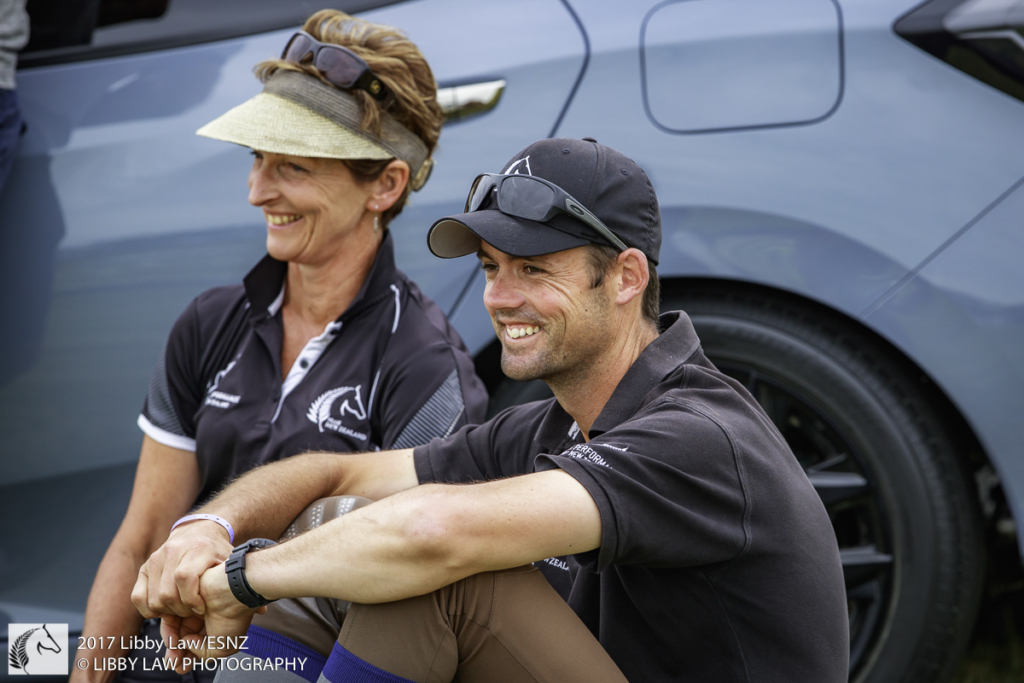It has been a positive year across all of ESNZ eventing squads according to performance leader Penny Castle. The ESNZ Eventing Future Potential Recognition Squad (FPR) may only be just over a year old but already those driving it are seeing massive improvements from the riders involved.
What’s really heartening for Penny is the constant raising of the bar from the riders. “The Talent Development and Talent ID squads’ quality continues to evolve as the standard continues to rise,” she says. “We now have a solid programme in place and this year we added an off horse camp to address other areas associated with horses. It was very successful as it was an excellent place to capitalise on the services offered by High Performance Sport New Zealand.”
Penny felt they continued to see “marked improvement” from the athletes as they engaged along the pathway, year by year. “We continue to aim to deliver to areas not addressed enough before but are so important to future careers including the likes of identifying horse power, or gaining and looking after sponsors.” She spoke highly of all the coaches who had contributed throughout the year.
The newest squad is FPR which was created to fill an identified gap between eventing’s performance riders and high performance.
It was felt that once riders leave the Talent Development space they are into a totally different scenario. The Future Potential riders are those that are moving into the “professional” sphere of their sport. “It all becomes far more individualistic,” says Eventing Performance Development Coach, Jock Paget.
“They all do their own thing, so it calls for a different type of support with a focus on things like the home yard, monthly squad schools, competition support and IPP support along with livelihood support which is education around all the things that are involved in being an event rider on the business side of things – how do I set up things for sponsors, owners, contracts and things like that.”
While the range of experience in this squad – which includes riders in both hemispheres –ranges significantly, they are all in the same space because they are having to work very hard on sourcing, developing and retaining horses of championship quality. “This is no participation programme,” cautions Jock. “These riders need to be good enough to be recognized on FPR.
Jock says it is important to understand the ESNZ High Performance Programme in the UK cannot be replicated here in New Zealand. “There are totally different dynamics here, given the competition scene and the number of high level riders, so we are doing it our own way and utilising the strengths we have here.”
The goal is to ensure the chosen combinations are in the best possible position to perform, to be properly prepared for a championship. That could include a European campaign or maybe heading to England to ‘do their time’ or something run more from the Southern Hemisphere after they have had a taste of that international standard.
“We want to create a pathway that will streamline the process of becoming a high performance rider,” says Jock. “If our programme in New Zealand can do more for the riders who could potentially ride at championships we will create more depth. They’ll come back here and feed back into the programme creating an eco-system. We want things to be more fluid for riders coming in and out of New Zealand for championships, but they all need some level of exposure to the international standard away from here.”
A somewhat surprising benefit of the FPR in New Zealand has been when they’ve worked alongside other riders. “Our FPR riders become the leaders here and they all thrive,” says Jock. “It is good for them to practice that and for the riders below to be riding alongside them sets a benchmark and helps lift the standard. It’s a win for everyone.”
Penny has plenty of praise for Jock’s input. “We have worked on aiming to deliver to the needs of the riders and where the gaps have been – like more test riding, more dressage, jumping days, home yard visits and helping with things like fitness. Jock has put in a huge amount of time and I believe we have seen some great improved performances as riders and horses have gained more skills.”
They are both looking forward to seeing the coming year of the programme as their efforts really start gaining traction.
“I am very excited for the future of this,” says Jock. “It is crucial to the long term success of New Zealand eventing. If we want repeatable success we need to think about sustainable success in our high performance space. We need to drive it otherwise we will just have waves of success.”
By Diana Dobson – HP Media Liaison
Photo by Libby Law/ESNZ
